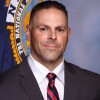For those of us in the profession who still love policing, retirement can be a double-edged sword. On one hand, you “may” get to enjoy the fruits of your labor with the commencement of pension checks or tapping into your hard-earned savings. This of course is contingent on multiple variables related to your agency, state, age and tenure. On the other hand, you may find yourself in the category of missing the camaraderie, structure, selflessness and enjoyment of serving. I fell into the latter group, and like many in our profession, I did not like the prospect of the private sector (yet) and wasn’t ready to sit on my backside.
I was fortunate to go from a deputy chief’s position in a city to a deputy chief’s position in a smaller, rural town. To say the differences were glaring would be an understatement. However, coming into a new agency as a new administrator is not only an intimidating transition, it is a privilege. Often when an outside executive-level officer is brought in, change is requested and/or required. This sentiment is not always welcomed by all, especially the rank and file. For those who are considering making that jump or recently did so, there are several considerations you need to account for to secure a successful transition into your new role.
1. Regardless of your collar brass, you come in as a guest.
Entering a new agency, you encounter an established culture that you are not a part of yet. For clarification purposes, you may NOT want any part of that (hence your hiring) but regardless, you need to learn the landscape. Cops hate change, even if it’s beneficial, and coming in hot to destroy their sacred cow will surely have you eating alone for the foreseeable future. Come in with an open mind, albeit a vision (in line with that of your chief) and get a good sense of how things operate before you decide whether or not to kick over the apple cart.
2. You need to build trust and legitimacy.
People may know you by word of mouth, social media presence, or past interactions but they do not know YOU. As a leader, you need to avail yourself to as many officers, administrative staff, clerks and city/town officials as possible. Do not assume that your reputation will carry unwavering support or followership. Even if your predecessor was a poor leader, it is guaranteed that he/she had several friends, colleagues or classmates who are still in the ranks. Whether you like it or not, you are being watched and judged. Make a concerted effort to be the boss you’d like to work for. Also, understand that this won’t happen overnight.
3. Get involved in your community and agency activities immediately.
Whether this is your second, third, or even fourth agency, it may be the first and only job for officers in that agency. It could also be someone’s hometown, family lineage, or favorite place on earth. If your officers, community, or elected officials believe that this is merely a “retirement job” you might as well settle on having a bumpy road ahead. Treat your new opportunity like you did the same as when you got hired by your prior agency. You still have to prove yourself and show your dedication and commitment to the job, personnel and community you serve.
4. Make sure your boss knows you are there for them.
You got brought in as a deputy — the direct associate to the chief. Chiefs are tasked with casting their vision; you are tasked with carrying that out and ensuring your staff understands, follows and thrives in that pursuit. If the chief is tenured at said location, you have to balance the responsibility of closing the gaps in the agency and building upon the existing strengths. If you’ve already established a good, mutually respectable relationship, this endeavor is that much easier.
5. Identify the unofficial leaders.
All agencies have them and their opinions carry weight. Being able to break bread with these officers early is important to not only tap into their experience, but get an insight about the agency from the people carrying the water. Remember, the view from the balcony is always different from the view on the dance floor. If you and the chief have changes recommended, get them involved and give them the WHY. They will be the ones spreading your word and becoming surrogates. The last thing you want is your relationship with influential officers starting on an adversarial note.
6. Be humble and sincere.
If you come in with the mentality that you are there to save the day, improve everything from operations to training, or show them “how things really work,” you will be lonely. Understand that by all rights, you don’t know nearly as much about the agency, town, or personnel as you think. Ask for help, ask questions and ask to be included. Yes, as an executive officer, you still need to be vetted before joining the team. Last, be sincere. Don’t try to embellish your career, or patronize your employees. Cops are great at many things, and sniffing out BS is one of them. Be honest and show vulnerability — that will earn you respect.
Take your new opportunity to lead with pride, use the honor of leading officers to improve their lives and the lives of your community members.




